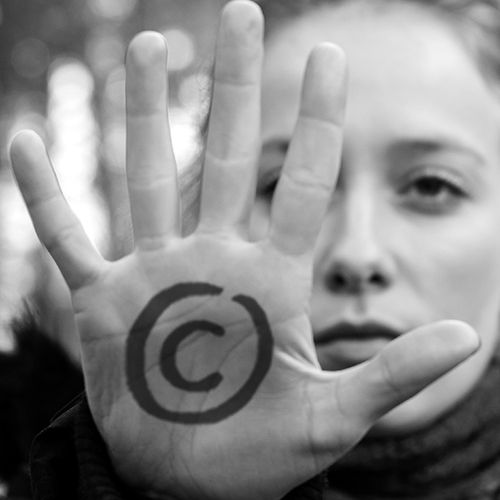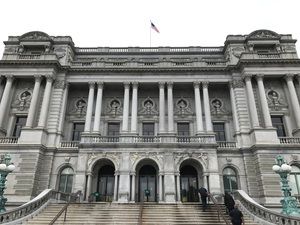Articles
Evolution of Copyright

 As photographers, we all understand the importance of the Copyright Office and everything it is meant to do for the world of copyright. However, besides being the protector of copyrights, the Office's other main purpose is to continuously provide Congress with the proper knowledge necessary to make decisions in the area of Intellectual Property.
As photographers, we all understand the importance of the Copyright Office and everything it is meant to do for the world of copyright. However, besides being the protector of copyrights, the Office's other main purpose is to continuously provide Congress with the proper knowledge necessary to make decisions in the area of Intellectual Property.
However, to fully understand the Copyright Office and how copyright law has evolved, it is necessary to go back to the early years of America. In 1787, during discussions for the Constitutional Convention, Article 1, Section 8, Clause 8 was added. It stated, "the Congress shall have power...to promote the process of science and useful arts, by securing for limited time to authors and inventors the exclusive right to their respective writings and discoveries." This law would go on to shape Copyright Law for many years to come.
Below is a short timeline of how both the Copyright Office and Copyright Law evolved.
1790: The first Copyright Act is passed and provides American creators with the ability to control when to print, reprint, or publish their work for up to 14 years, with the ability to renew for another 14 years. This was done to encourage creators to continue to add to society while giving them an incentive to do so.
1831: This was the first review of the Copyright Act. This revision allowed the protection of copyright to be extended to 28 years with the possibility to renew for another 14 years. This change was made to ensure American creators had the same, if not similar, protections as their European counterparts.
1870: This was the first revision of the Copyright Act. When the Copyright Office was first created it was up to each individual District Court to file copyright claims. However, with this revision, the office was moved from the District Courts into the Copyright Office, where it would remain.
1909: After another major review of the Copyright Act, the items that could be protected by copyright were increased to include more categories. This review also extended the renewal from 14 years to 28 years. During this time, many congressional members were trying to find a balance between allowing the creator to enjoy the benefits of their creation and also allowing the public to enjoy these creations.
1976: After 67 years of no revisions to the Copyright Act, it was necessary to incorporate technological advancements, as well as to prepare to join the Berne Convention which was joined by our European counterparts in 1886. Also during this revision, copyright protection was extended to the life of the author plus 50 or 75 years if the work was done for hire and/or for unpublished works.
1992: An amendment was made to make copyright renewal automatic, and therefore really limited what items were joining the public domain.
1998: Sonny Bono Copyright Term Extension Act extended protection from 50 years after the life of the creator to 70 years after the life of the creator.
1998: Digital Millennium Copyright Act (DMCA) brought some aspects of copyright law to the 90s that would address challenges many creators were facing while attempting to regulate digital items.
1999: Digital Theft Deterrence and Copyright Damages Improvement: With infringement becoming so easy, it was necessary to find some way to deter this from happening. Congress approved a large increase in the minimum statutory damages. The minimums went from $500 to $700 and the maximums went from $20,000 to between $30,000 and $150,000 depending on intent.
2016: Small Claims bill is introduced by Representative Judy of Chu of California. Proposing an alternative method to pursuing infringement claims valued at less than $30,000. During this same year, Chairman Goodlatte circulated a white paper highlighting the importance of Small Clams and making it a priority for the upcoming year.
2017: Representative Goodlatte introduced H.R 1695 to turn the Register of Copyright into a Senate-confirmed, Presidential Appointee, therefore ensuring a person with ample copyright knowledge is able to run the copyright office, and have a certain degree of autonomy from the Library of Congress. This bill currently has been introduced in the Senate at S. 1010 and will be heading to committee shortly.
As you can see, the history of copyright in the U.S. is a long and winding road. PPA is making sure YOUR rights are protected by being a constant presence on Capitol Hill during these exciting months. Be sure to sign up and show your support (and share with all your friends!).
